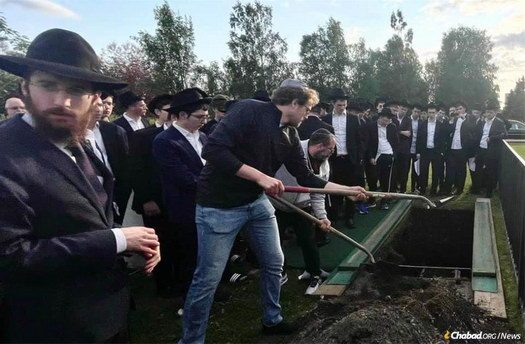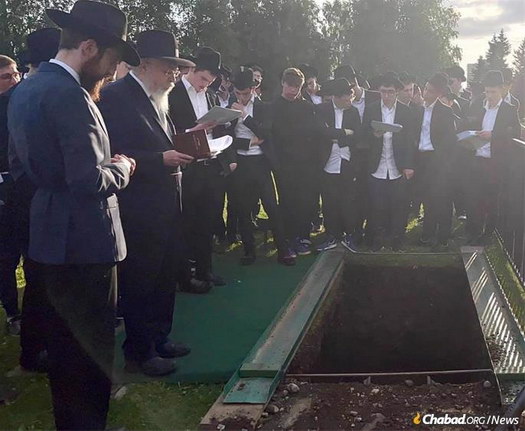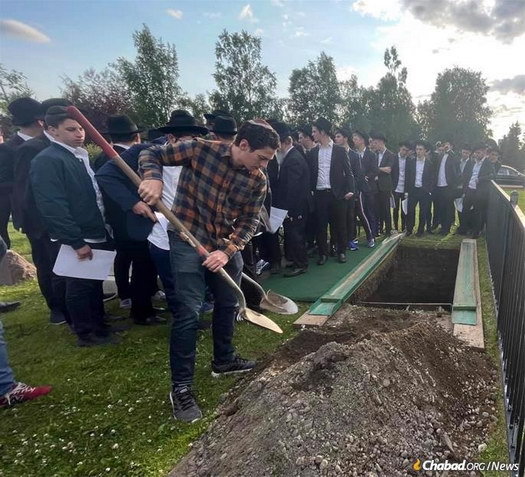
100 Strangers Attend Jewish Burial for Man From Tiny Alaskan City
by Menachem Posner – chabad.org
Jules Claven lived for decades in close proximity to bears, moose, caribou and sheep in the Alaskan town of Soldotna (population 4,000), but nowhere near a Jewish community.
In his 80th year and terminally ill, he called the Alaska Jewish Campus, which is listed on the Chabad.org directory, with a single wish: “I have three weeks left,” he told Rabbi Levi Glitsenstein, who picked up the phone. “I don’t have any family with me, and although I wasn’t so involved in the Jewish community, I really want to be buried with my people. Rabbi, can you help me?”
The rabbi promised Claven that he would do what he could to arrange a kosher burial.
For the next three weeks, Claven would call the rabbi every other day. In the course of their conversations, Clavin shared his Hebrew name (Yosef ben Eliezer HaKohen) and memories of Jewish life in New England, where he accompanied his grandfather to synagogue services.
For a long time, Claven, a medical therapist, divided his time between Miami and Soldotna, but in recent years had made Alaska his home.
“Rabbi, will you make sure to come and take me?” he’d ask with concern. Only after Glitsenstein assured him that he would did the man hang up with a modicum of comfort.
With each phone call, his voice got quieter and weaker, but the question was the same.
Knowing that the end was near, the two had a video call together, during which the rabbi led his newfound acquaintance in saying the final confession on Chabad.org. Even though he had not lived among Jews or attended services for so long, Claven remembered the Shema prayer by heart in Hebrew.
On July 20, he passed away. As per his final wishes, his remains were brought to Anchorage, where the taharah was performed by members of the Seattle Chevra Kadisha (“Sacred Society”), who flew in for the funeral.
On July 22, about 100 Jews gathered at the Jewish section of Anchorage Memorial Park Cemetery to see him off on his final journey.
In addition to Chabad rabbis, the crowd included local community members, tourists and even the students of a traveling yeshivah camp.
Not one person in the crowd had ever met the deceased, but that didn’t matter. He was family, a fellow Jew.
“This special mitzvah of caring for and honoring the dead is referred to as chesed shel emet, ‘kindness of truth,’ ” says Glitsenstein. It is considered the ultimate altruistic kindness since the deceased is no longer able to express his appreciation. “In his name, I want to thank the members of our community who joined us and shared with me the inspiration they took for life from this story.”












